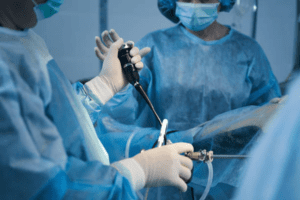Living with recurring slipped disc pain can be a constant struggle. Patients typically experience discomfort, limited mobility, and a significant impact on their daily lives. A recurring slipped disc often indicates underlying issues that need proper diagnosis and effective treatment.
Dr. Gurneet Singh Sawhney, regarded as one of the best neurosurgeon in Mumbai, emphasizes the importance of proper evaluation and timely intervention in managing a recurrent slipped disc and preventing further complications. He states that addressing recurring slipped disc pain requires a comprehensive approach to identify the root cause and provide a tailored treatment plan.
With extensive expertise in treating complex spinal conditions and a commitment to patient care, Dr. Gurneet Singh Sawhney offers advanced solutions to help individuals find relief from recurring slipped disc pain and regain their quality of life.
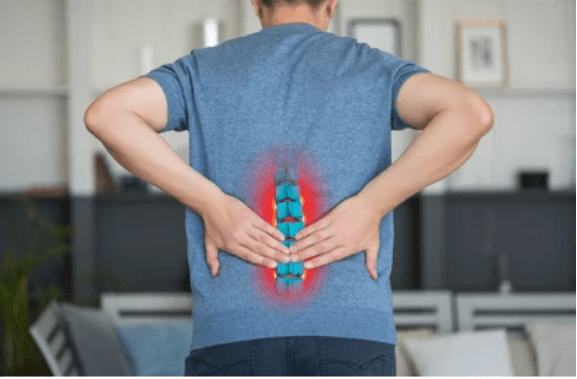
Is it Normal to Have a Recurrent Slipped Disc?
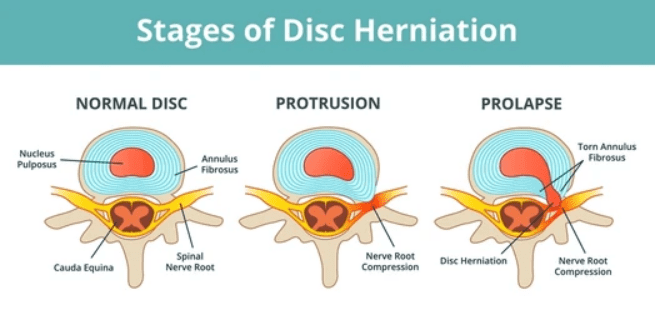
A recurring slipped disc, medically known as a recurrent herniated disc, is not uncommon. It happens when a previously treated disc slips again, causing similar or worsened symptoms.
Recurrence rates can vary, but studies suggest up to 20% of patients may experience a recurrent slipped disc post-surgery. Understanding why a disc slips again is crucial for effectively managing this condition.
Why Does My Herniated Disc Keep Coming Back?
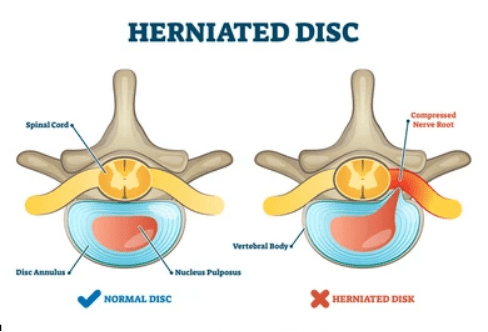
Recurrent herniated discs can be attributed to several factors. One primary reason is the incomplete healing of the initial disc injury. When the disc does not heal properly, it remains vulnerable to re-injury.
Another factor is lifestyle and activity level. Engaging in activities that strain the spine, such as heavy lifting or improper posture, can increase the risk of re-injury. Genetic predispositions can also play a role. Some individuals may have a natural tendency towards spine problems.
Other reasons could include underlying conditions such as degenerative disc disease. As we get older, the discs in our spine lose hydration and elasticity, making them more susceptible to herniation. Even after successful treatment, the weakened discs can herniate again with minimal strain.”
Dr. Gurneet Singh Sawhney notes, “A holistic approach, including lifestyle changes and proper rehabilitation, is essential in preventing recurrent herniated discs.”
Are you fed up with recurring disc pain? Get expert advice on comprehensive treatment options.
Symptoms of a Recurring Slipped Disc
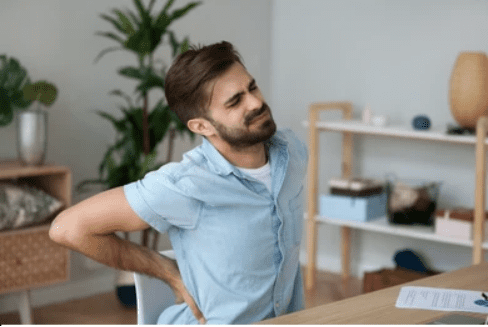
● Persistent back pain: Continuous or intermittent pain in the lower back that doesn’t improve with rest.
● Radiating pain: Pain that spreads to the legs or buttocks, often described as a sharp or burning sensation.
● Numbness or tingling: Sensations of numbness or tingling in the affected area, which can extend to the legs.
● Muscle weakness: Weakness in the muscles controlled by the affected nerves, leading to difficulty in performing daily activities.
● Limited mobility: Reduced range of motion and stiffness in the back, making it challenging to bend or lift objects.
● Worsening symptoms: Symptoms that intensify with activities such as sitting, standing, or walking for extended periods.
Noticing these symptoms? Consult an experienced spine doctor for a thorough evaluation and personalized herniated disc treatment plan.
Treatment Options for Recurring Slipped Disc
1. Conservative
- Treatments: Physical therapy to strengthen the muscles around the spine.
- Pain management techniques such as medications and epidural steroid injections.
- Lifestyle modifications to reduce strain on the spine.
2. Surgical Interventions:
Microdiscectomy: A minimally invasive procedure to remove the herniated portion of the disc.
- Spinal fusion: Fusing two or more vertebrae to provide stability to the spine.
- Artificial disc replacement: Replacing the damaged disc with an artificial one to maintain mobility.
- Endoscopic spine surgery: A minimally invasive option for precise disc removal.
When to Consult a Doctor?
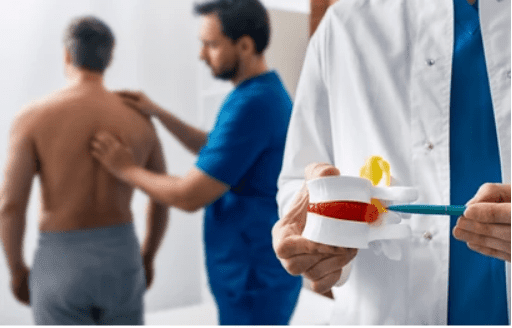
- Severe Pain:If you experience severe pain that doesn’t improve with rest or over-the-counter medications.
- Numbness or Weakness:Persistent numbness, tingling, or weakness in the legs or arms.
- Loss of Bladder/Bowel Control:Inability to control bladder or bowel movements, which is a medical emergency.
- Worsening Symptoms:Symptoms that progressively worsen over time despite conservative treatments.
- Difficulty Performing Daily Activities:If the pain and other symptoms interfere with your ability to carry out daily tasks.
- Previous Episodes:If you have had prior episodes of slipped discs and are experiencing similar symptoms.
Conclusion
Recurring slipped disc pain can significantly impact your quality of life. However, with proper treatment, it is manageable. Understanding the causes, symptoms, and available treatment options is crucial for effective management.
Consulting with an expert like Dr. Gurneet Singh Sawhney, considered one of the best spine surgeon in Mumbai, can provide personalized solutions to address your condition and improve your well-being. Seeking timely treatment and adhering to a comprehensive care plan can help prevent recurrence and enhance your spinal health.
Looking for effective treatment for a recurring slipped disc? Book your consultation with a spine specialist to get started.
Frequently Asked Questions
- Is a herniated disc a lifetime problem?
With proper treatment, many people can manage and even recover from a herniated disc. However, ongoing care and lifestyle adjustments are essential to prevent recurrence.
- Can the same disc herniate multiple times?
A disc can herniate multiple times if underlying issues are not adequately addressed. There is no set limit, but we can prevent recurrence with appropriate treatment and lifestyle modifications.
- Why is my slipped disc not healing?
Factors such as inadequate rest, improper treatment, and underlying conditions can prevent a slipped disc from healing effectively.
- What happens if a slipped disc is left untreated?
Untreated slipped discs can lead to chronic pain, nerve damage, and significant disability.
- When should I consider surgery for a herniated disc?
Surgery is considered when conservative treatments fail to provide relief or if there is severe pain, neurological deficits, or loss of bladder/bowel control.
- How long does it take to recover from a slipped disc?
Recovery time varies, but with proper herniated disc treatment, many patients feel better within a few weeks to a few months.
- What is the difference between bulging and herniated discs?
A bulging disc occurs when it protrudes from its normal space. On the other hand, a herniated disc involves a tear in its outer layer, causing leakage of the inner material.

